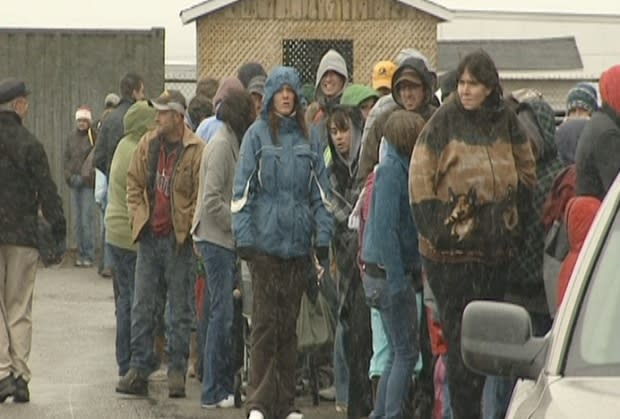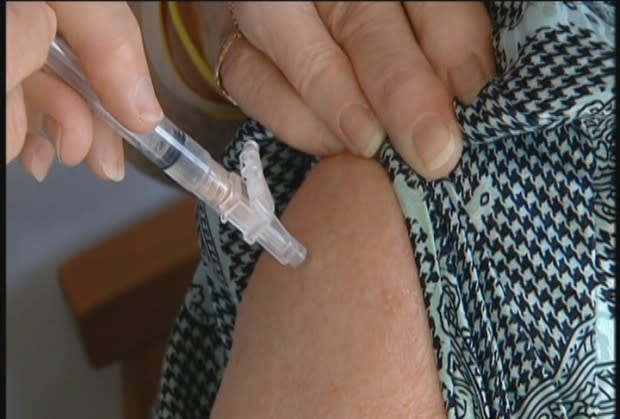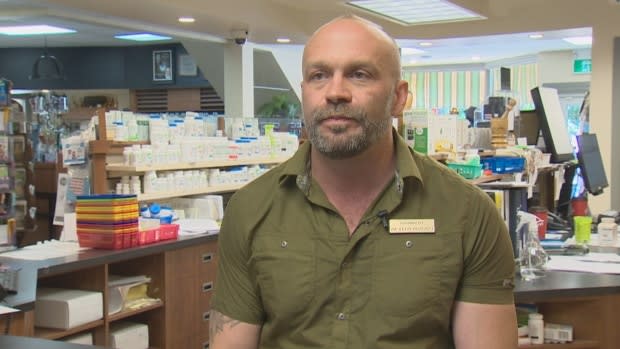Countdown to free flu shots

It's going to be another challenging test for 2020 -- how to vaccinate possibly more than half of New Brunswick's population against the seasonal flu, during a pandemic.
And the rubber's about to hit the road.
The department of health confirms it has ordered more than 400,000 doses of flu vaccine with the first shipment due to arrive by the end of this month.
Sussex pharmacist Kevin Duplisea plans to start booking appointments as soon as he has product in his store.
The province has advised pharmacists not to schedule clinics until they have vaccines on site.
"The understanding is the first week of October, vaccines will be available in community pharmacies," he said.
Duplisea says safety is a top concern and that's one of the reasons why appointments are encouraged, to help control the traffic flow.
Customers should also expect to take all the usual COVID-19 precautions.
They're encouraged to bring their own mask and to keep it on, while waiting.

He says pharmacists will also wear their masks and they'll keep their distance until it's time to give the needle.
"That's when you'll be under that two metres with us, the vaccinators, so that's why it's important to wash your hands when you come into the store and the pharmacist has to wash his or her hands," said Duplisea.
Self-screening is also important.
"If you have fever, any respiratory symptoms, any new or worsening cough, any sore throat, don't come," he said. "Call ahead."
Guessing how much to order
Epidemiologist Colin Furness says it's hard to predict demand for any vaccine because some people will refuse it and some behaviour is irrational.
In the H1N1 outbreak in 2009, he says Canadians only seemed jolted when they heard of the death of a 13-year-old boy in Ontario.
"People freaked and all of a sudden, there were lineups halfway down the block and there was a shortage of vaccine. How could you predict this? You can't," said Furness.
In November of that year, New Brunswick launched mass immunization clinics, and was counting on 80,000 doses arriving each week.

The following spring, when public health wrote its review of that campaign, it reported a vaccination rate of 65 percent.
Furness says it's hard to tell how COVID-19 will impact public reaction this time.
"Maybe this is when people who normally wouldn't [get their vaccine] go, 'Okay. I'm frightened this year. This is a different year. I'm going do to that," said Furness.
"I think if you look at the big picture of COVID and the second wave and heading into the winter, this would be a particularly horrible year to come down with a bad case of flu for a few reasons.
"So it's really a question of not wanting to leave any intervention on the table. We're at war. Let's use everything we have to win and the flu shot is part of that."
Duplisea says he expects a high participation rate.
."I think that Maritimers and Canadians will want to do something," he said.
"They've been sitting around feeling helpless for several months and I think given the chance to vaccinate against influenza ...I think they'll be more than willing to come out."
What are we getting and when?
This year, the flu vaccine program is free to every resident in New Brunswick and it includes two products.
Flulaval® Tetra (GSK) and Fluzone® Quadrivalent (Sanofi) both protect against four strains of flu as recommended by the World Health Organization.
The province has also ordered FLUZONE® High-Dose (Sanofi).
It will only be offered to people who are 65 years and older and living in long-term care facilities such as licensed nursing homes and adult residential facilities.

The full order of more than 400,000 vaccines won't arrive all at once.
Instead, it's expected that four deliveries will be staggered over several weeks.
Hospitals will be first in line to receive vaccine.
Furness says it's in everybody's interest for people to get their flu shots sooner rather than later.
"The protection wears off based on the mutation rate of the virus," he said.
"It will start to mutate around the vaccine. So the more people who get vaccinated earlier, the less circulation there is and the less mutation there is".
"So ironically, the time of protection that you have, actually depends on participation."
"If everyone gets the shot, the protection will be a lot longer because the flu won't be circulating nearly as much."


